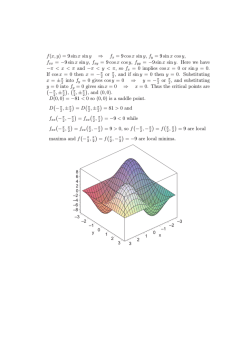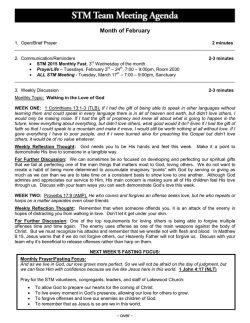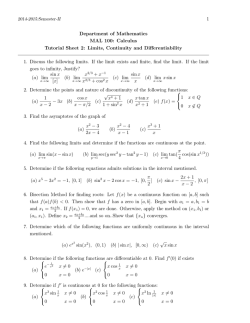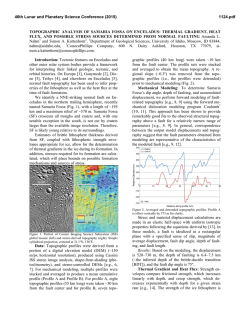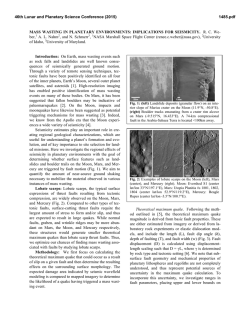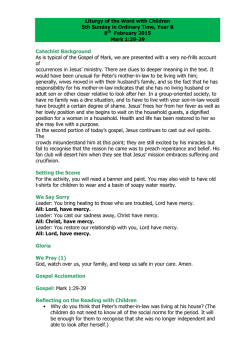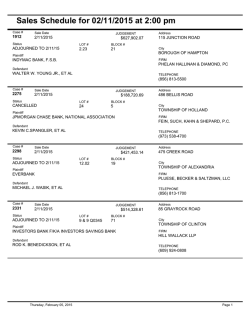
Forgiveness Without Finding Fault
Forgiveness Without Finding Fault One of the things that we as humans do is want to win at everything we involve ourselves in. This often includes disagreements. We want to be declared “right” and our adversary “wrong” when often neither are totally right or wrong. Sometimes our willingness to forgive is based on whether or not the person we are having a disagreement with is willing to admit he is “wrong.” When David was king of Israel, he was involved in a full-blown civil war with his own son Absalom. Even so, he gave strict orders that his son was not to be harmed. However, those orders were ignored and Absalom was killed by one of David's mighty men. When the report came that Absalom had been killed, David had every right to celebrate. The war was over! David had solidified his reign over Israel. Absalom was “wrong” and David was “right.” But the reaction of David, the “man after God's own heart” was to grieve. In 2 Samuel 18:33 you see his grief: “O my son Absalom! My son, my son Absalom! If only I had died instead of you!” David had forgiven his son, even though Absalom was never penitent. Family members forgive without finding fault or holding grudges. A story was told of a king, not unlike David, who had suffered much from his rebellious subjects. But one day they surrendered their arms, threw themselves at his feet, and begged for mercy. He pardoned them all. One of his friends said to him, “Did you not say that every rebel should die?” to which the king replied “Yes, but I see no rebels here.” The prodigal son of Luke 15 was repentant. He even practiced his “speech” to his father. But his father would hear none of it. He forgave his son and celebrated his return. “This son of mine was dead and is alive again; he was lost and is found.” Although the older son was angry, it is obvious that the father in Jesus' parable reacted to the wrong done to him in the way God expects us to react. The woman caught in the act of adultry was brought to Jesus for judgement. Everyone knows His reaction. “Let the one without sin cast the first stone...go and leave your life of sin.” Forgiveness without judgement. In our dealings with each other, it's best for us to remember these four things: None of us are totally faultless and don't have the right to find fault in others. (Romans 3:23) Our sins are against God and God forgives those who are truly penitent and agree to “leave their lives of sin.” God has the right to judge, we don't. (Matthew 7:1ff) He dispenses mercy, not judgement. (James 2:13) God's forgiveness is conditional. He forgives as we forgive. (Matthew 6:15)
© Copyright 2026
